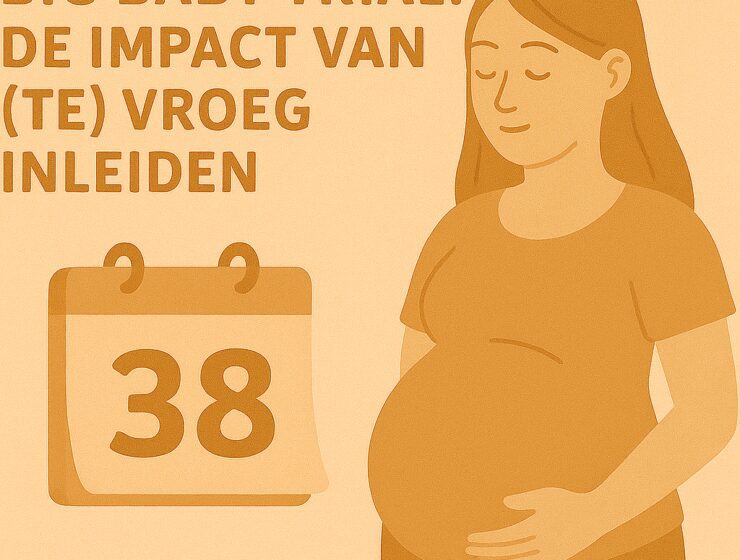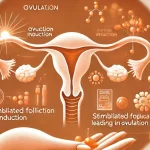Being pregnant is a wonderful and unique experience, but it sometimes also brings discomfort. One of those discomforts that you may not have heard of before is pregnancy itch. Do you suffer from an itchy stomach or itchy legs? Don't worry, you're not alone! In this article we would like to explain to you what the causes of that annoying itch can be. We also give you practical tips to relieve the itching, so that you can fully enjoy your pregnancy.
Cholestasis of pregnancy
Some pregnant women develop a condition called cholestasis. This condition occurs when the flow of bile in the liver is slowed or blocked, which can lead to intense itching all over the body. Cholestasis mainly occurs in the third trimester of pregnancy. The main symptoms are: severe itching without rash, often worse at night, which can lead to sleep problems. Although it is a rare condition, it is important to recognize and treat it quickly because of the potential risks for both mother and baby.
There are some important steps that you can take to relieve the itching:
-
- Keep your skin cool and hydrated by taking lukewarm baths and using unscented moisturizers.
-
- Avoid hot environments and wear loose, cotton clothing to reduce irritation.
-
- Discuss with your midwife the possibility of medications that can reduce itching and maintain your bile acids.
In addition, an adapted diet, with less fat and more fiber, can contribute to lowering your bile acid levels.
| Natural Remedies | Effect on Itching |
|---|---|
| Oatmeal baths | Calming |
| Aloe Vera Gel | Moisturizing |
| Cool Compresses | Illuminating |
Other causes of pregnancy itching
In addition to the previously mentioned causes, there are: several other factors that can cause pregnancy itching. Sometimes itching has to do with a dry skin due to hormonal changes. During this period your skin becomes more sensitive. In addition, the faster ones can also be used weight gain and the stretching of the skin contribute to itching. Many pregnant women notice that their skin feels tighter and drier, especially around the abdomen and breasts.
-
- Atopic eczema: Many women who have previously suffered from eczema may notice that it gets worse during pregnancy.
-
- Cholestasis: This is a liver disease that causes itching without a rash, especially on the hands and feet.
-
- Hormones: The changes in hormone levels can also make itching worse.
-
- Allergies: You may even become more sensitive to certain substances that previously did not bother you.
| Cause | Symptoms |
|---|---|
| close clothes | Itching, irritation |
| hot weather | Redness, itchy skin |
| soap or lotion | Dry, itchy skin |
The conditions and situations mentioned can range from mild discomfort to significant annoyance. It is therefore advisable to talk to your midwife if you suffer from persistent or worsening itching. This way you can be sure what the cause is and whether there are treatment options that can give you relief.
Check-ups during pregnancy and policy surrounding childbirth
During pregnancy, regular check-ups are essential to ensure both the health of the mother and the baby. These checks help in the timely detection of possible complications and ensure smooth communication between the expectant mother and the medical team. Our midwives follow an extensive schedule of appointments where every aspect of the pregnancy is carefully monitored. Think of blood pressure measurements, checking blood values and listening to your baby's heartbeat. During these consultations we also discuss every complaint, including pregnancy itch, and provide targeted advice for relief.
We provide accurate planning and personalized policy around the birth that suits your wishes and health. Whether you want to give birth at home or in the hospital, we are ready to support and guide you. We always explain the options in detail, as well as possible contingencies, so you can make fully informed decisions. This will help you feel confident and prepared no matter what scenario arises. In the case of pregnancy itching, we will also discuss preventative measures and treatment options so that you feel as comfortable as possible during the rest of your pregnancy. Below you will find an overview of possible treatments:
-
- Moisturizing creams: Use a mild, unscented cream daily.
-
- Cold compresses: Apply a cold compress to the itchy areas.
-
- Lukewarm baths: Take a bath with oatmeal to soothe the skin.
-
- Loose-fitting clothing: Wear cotton clothing that fits loosely around your body.
| Controls | Frequency |
|---|---|
| Blood tests | Every 4-6 weeks |
| Echoes | At 12, 20 and 32 weeks |
| Blood pressure measurement | Every check |
After the birth
After you have your little one in your arms, pregnancy itches can unfortunately persist for a while. It's important to know that you're not alone. The recovery of your skin can take time, especially with all the hormonal changes still going on. It is essential to take good care of yourself and your skin.
Here are some useful tips to relieve itching:
-
- Hydrate: Use moisturizers and lotions to keep your skin supple.
-
- Avoid irritants: Choose hypoallergenic products and wear loose-fitting clothing made from natural fabrics.
-
- Keep your skin cool: Heat can make itching worse, so try to keep yourself cool by taking lukewarm showers, for example.
-
- Stay hydrated: Drink plenty of water to avoid dehydration, which can worsen itching.
| Tip | Description |
|---|---|
| Zinc ointment | Soothe your skin with zinc ointment. It has a cooling effect. |
| Oatmeal bath | Take a bath with colloidal oatmeal for relief. |
Practical advice
To relieve pregnancy itch, you can take several practical steps. Many women discover that applying a good moisturizer can work wonders. Preferably choose a natural, odorless lotion to extra hydrate the skin. In addition, consider shortening your shower time and using lukewarm water instead of hot water. This prevents further dehydration of your skin and can help reduce itching. Don't forget that tight clothing can also be a culprit. Try to wear loose, breathable fabrics to minimize friction and allow your skin to breathe freely.
If possible, try to reduce stress. This can make the itching worse. Practical techniques such as yoga and mindfulness can help with this. Getting enough rest is also crucial, because tired skin is often more sensitive. If you experience intense itching at night, consider applying a cold, wet cloth to the itchy areas. In addition, there are some adjustments to your diet that you can consider, such as increasing of your intake of Omega-3 fatty acids. These can reduce inflammation and irritations. Check out the table below for some Omega-3 rich foods you may want to try:
| Foodstuff | Source of Omega-3 |
|---|---|
| salmon | High |
| Flax seed | High |
| Walnuts | Mediocre |
| Spinach | Low |
Resume
Now that you know more about pregnancy itching, we at Midwifery Lelystad hope that you feel better prepared and that you have possible solutions to relieve the itching. Pregnancy is a special time in your life, and although pregnancy itches can be annoying, fortunately there are plenty of ways to find some relief.
If you have any questions or need personal advice, please do not hesitate to contact us. We are always ready to support and guide you during your pregnancy.
Remember, it's important to take good care of yourself and listen to your own body. If you have any questions or doubts, don't hesitate to drop by or call us. Together we will ensure that your pregnant months are as comfortable as possible!
Good luck and have a nice pregnancy!








